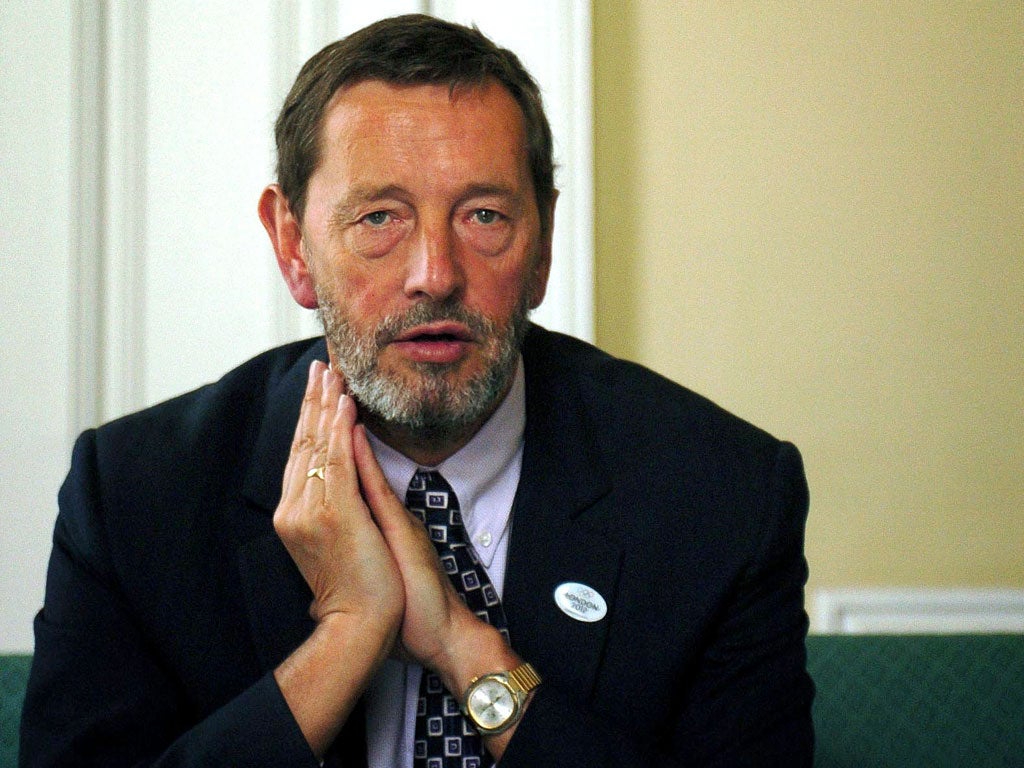The public's perception of disabled people needs to change — we're not just Paralympians or scroungers
Just as we were making progress, we've started to take a big step back


Your support helps us to tell the story
From reproductive rights to climate change to Big Tech, The Independent is on the ground when the story is developing. Whether it's investigating the financials of Elon Musk's pro-Trump PAC or producing our latest documentary, 'The A Word', which shines a light on the American women fighting for reproductive rights, we know how important it is to parse out the facts from the messaging.
At such a critical moment in US history, we need reporters on the ground. Your donation allows us to keep sending journalists to speak to both sides of the story.
The Independent is trusted by Americans across the entire political spectrum. And unlike many other quality news outlets, we choose not to lock Americans out of our reporting and analysis with paywalls. We believe quality journalism should be available to everyone, paid for by those who can afford it.
Your support makes all the difference.There’s a profound contradiction in public attitudes towards disability. This is something that I have rarely written or spoken about, but throughout my career I hope I have been able to contribute to positively in changing attitudes for the better.
The chair of Work and Pensions Select Committee Anne Begg MP put it succinctly in an interview earlier this year. She described how “with disability issues, it’s often two steps forward, one step back." Attitudes, according to Begg, seem to have become polarised between "aren’t they wonderful?" – which was particularly the case during the 2012 London Paralympics – to the increasingly popular "what a bunch of scroungers".
And it’s true. For all the steps we've taken forward, we now seem to be going back. Today has seen the welcome extension of the Access to Work scheme, which supports disabled people to get and keep jobs. But as the charity Disability Rights UK has said, the sting is in the tail. As part of the extension the scheme will also be cut, meaning that the amounts available for disabled people will be capped, and the freedom to choose how one travels to work will be taken away.
And of course, this isn't an isolated incident. The eye-watering cuts to both public services and benefits under this government have been huge, and had a disproportionate impact on those with disabilities.
Their projection of those spending cuts – which have in one way or another touched detrimentally on millions of disabled people – amount to a staggering £28.3bn. The Bedroom Tax, the abolition of the Independent Living Fund, cuts in social care and the switch from Disability Living Allowance to the so called Personal Independence Payment are just some of the examples.
At the extreme end of the spectrum, reports of disability hate crime are up. That’s a disturbing element to take into account when it comes to perceptions about disability. Recent policy development on disability has been rooted in the deserving and undeserving, rather than an approach which explores how to facilitate people’s ability to participate in their community and contribute to their own wellbeing.
That is why these issues should form a part of the debate in the general election. The voice of millions of people wishing for practical support, rather than passing sympathy, should be heard.
There’s practical things we should do. Radio and television programmes should reflect the diverse make up of our society, and we need better sub-titling and audio description services – let’s not forget that longevity means many more people will need this kind of support. A little extra help to continue living life to the full.
People with disabilities need to inform the work of planners and architects, of design – including through technology – and work directly with providers of a range of services to help them become more independent, self-determining and to have the dignity that all of us seek.
This of course is not about the individual or government alone. A joined up approach by employers could achieve enormous strides in enabling people to stay in work or to be able to hold onto a job when returning to work.
On top of a well-funded Access to Work scheme, a bit of imagination in the workplace could mean that many disabled people are free to learn and earn alongside their neighbours and friends. Instead, they feel threatened and harassed by "fitness to work" assessments, which are not fit for purpose.
We also need a new task force to challenge stereotypes and inform policy in a way that has been so evidently lacking over the last five years. The absorption of the Disability Rights Commission into the Equality and Human Rights Commission was a mistake, resulting in a loss of focus on disability issues.
Disabled or not, all of us are dependent on the mutuality and reciprocity which are the hallmarks of a civilised society at some time in our lives. And isn’t a civilised society the kind of society we all want to live in?
David Blunkett MP is a former secretary of state for the Home Office, and Department of Work and Pensions.
Join our commenting forum
Join thought-provoking conversations, follow other Independent readers and see their replies
Comments